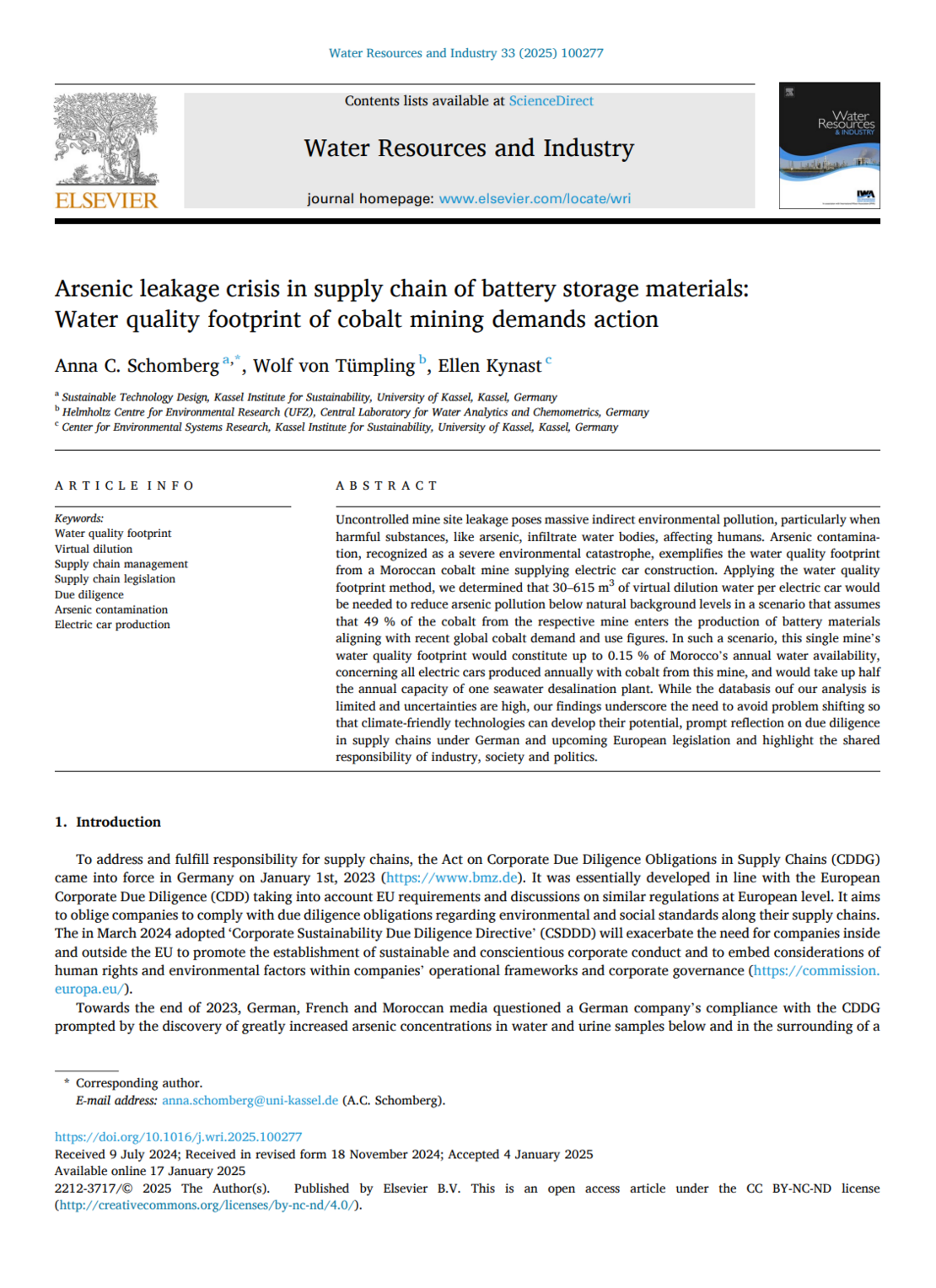Uncontrolled mine site leakage poses massive indirect environmental pollution, particularly when harmful substances, like arsenic, infiltrate water bodies, affecting humans. Arsenic contamination, recognized as a severe environmental catastrophe, exemplifies the water quality footprint from a Moroccan cobalt mine supplying electric car construction. Applying the water quality footprint method, we determined that 30–615 m3 of virtual dilution water per electric car would be needed to reduce arsenic pollution below natural background levels in a scenario that assumes that 49 % of the cobalt from the respective mine enters the production of battery materials aligning with recent global cobalt demand and use figures. In such a scenario, this single mine's water quality footprint would constitute up to 0.15 % of Morocco's annual water availability, concerning all electric cars produced annually with cobalt from this mine, and would take up half the annual capacity of one seawater desalination plant. While the databasis ouf our analysis is limited and uncertainties are high, our findings underscore the need to avoid problem shifting so that climate-friendly technologies can develop their potential, prompt reflection on due diligence in supply chains under German and upcoming European legislation and highlight the shared responsibility of industry, society and politics.

